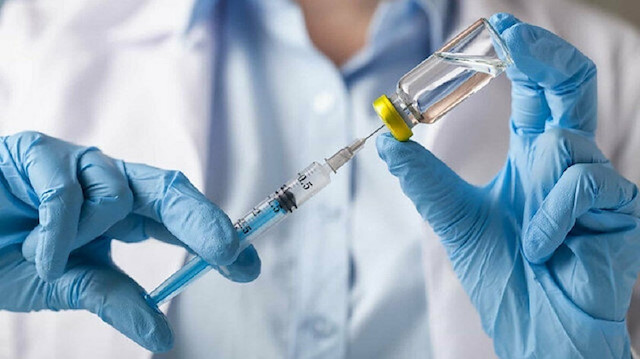
Turkish virologist says unnecessary vaccine doses may increase risk of hypersensitivity such as allergies
A Turkish medical expert voiced support for a recent study that suggested a single shot of coronavirus vaccine can be preventive enough for coronavirus survivors, saying it would also provide vaccines for millions of people.
In a new study published on Monday, researchers from Icahn School of Medicine at Mount Sinai in New York observed that participants who were previously infected with the coronavirus gave an equal or higher antibody response after they were administered the first dose of the mRNA-based vaccine than those did not catch the virus and received two doses of the same vaccine.
The study – yet to be peer-reviewed – also found that people who had previously contracted the virus reported unpleasant side effects such as headache, fever, and muscle or joint pain more frequently than those who never had the virus after the first dose vaccine.
According to these results, the scientists suggest that people who had previously been infected with coronavirus may be given just one dose of vaccine to create the same immunity as those who did not contract the virus and received two doses of the vaccine.
"Changing the policy to give these individuals only one dose of vaccine would not negatively impact on their antibody titers, spare them from unnecessary pain and free up many urgently needed vaccine doses," the study noted.
Dr. Fatih Sahiner, a medical microbiologist and virologist at the University of Health Sciences, Gulhane Faculty of Medicine in the capital Ankara, agrees with this study.
"Administering the second dose of vaccine to coronavirus survivors will not have an additional benefit. And with a single dose of vaccine given to these people, it is possible that millions of more people could reach vaccine and develop immunity against the virus," Sahiner said in an exclusive interview with Anadolu Agency.
The one-shot virus implementation undoubtedly would be a reasonable strategy during the pandemic period, he argued.
"Since a person who recovered from an infectious disease already has protective immunity to some extent, their immune system perceives the vaccine as a new infection and responds strongly," he said.
That is why the vaccine's unpleasant side effects are significantly higher in coronavirus survivors than those who did not catch the virus before, he explained.
Ruling out a possible great danger to be exposed by excessive doses of vaccine, Sahiner said: "It is necessary to consider the possibility that unnecessary vaccine doses may increase the risk of hypersensitivity such as allergies in hypersensitive individuals."
According to World Health Organization (WHO), "As of December 2020, there are over 200 vaccine candidates for COVID-19 being developed. Of these, at least 52 candidate vaccines are in human trials. There are several others currently in phase I/II, which will enter phase III in the coming months."
GAVI, the Vaccine Alliance, says there are four different categories of vaccines in clinical trials; viral vector, Nucleic Acid (RNA and DNA), whole virus, protein subunit, adding some of them try to smuggle the antigen into the body, others use the body's cells to make the viral antigen.
Oxford-AstraZeneca and Russia's Sputnik V are viral vector vaccines, while Pfizer-BioNTech and Moderna are mRNA-based vaccines. Also, China's CoronaVac is an inactivated vaccine.
According to the US' Johns Hopkins University, the pandemic has so far claimed more than 2.25 million lives in 192 countries and regions since it emerged in December 2019.
Over 104 million cases and over 57.78 million recoveries have been reported worldwide.
Hello, the comments you share on our site are a valuable resource for other users. Please respect other users and different opinions. Do not use rude, offensive, derogatory, or discriminatory language.
The floor is all yours.








